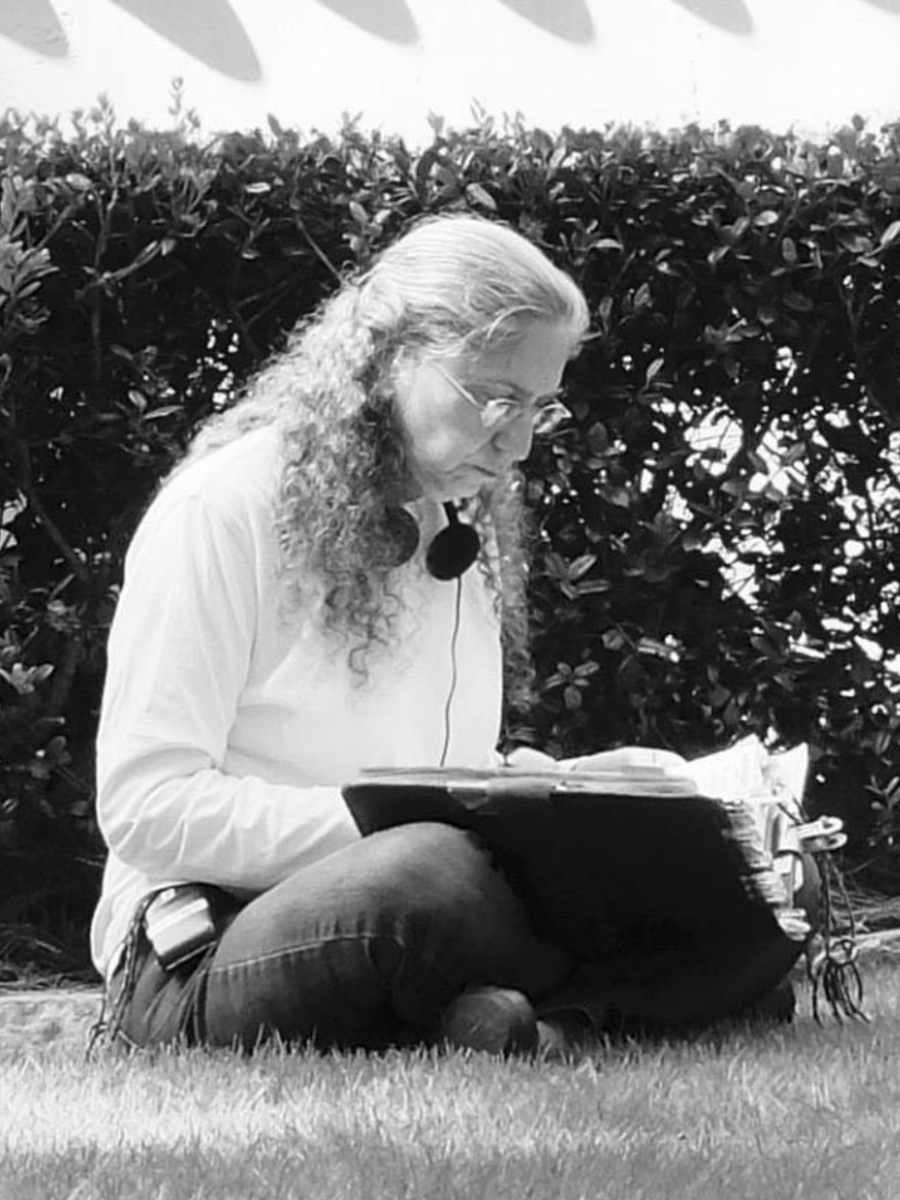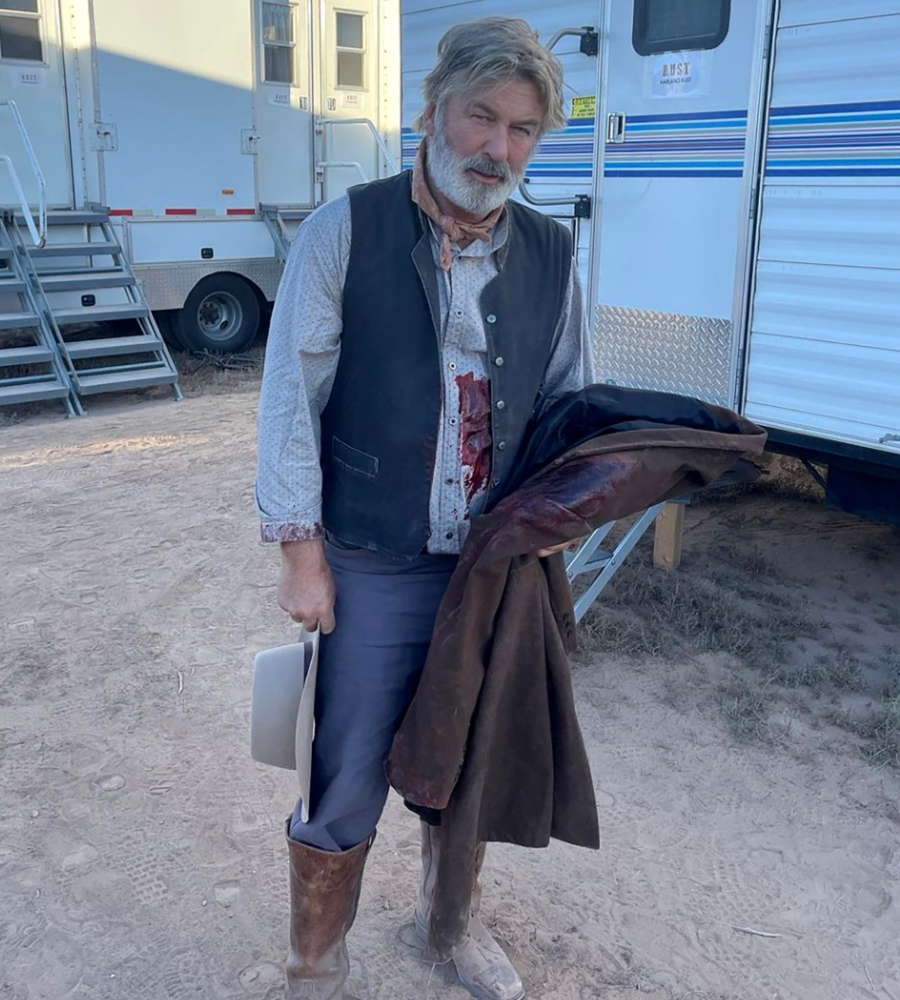
And here the plan was to talk about a recent online gathering of film commissioners and producers to discuss the current state of incentives — especially domestically, and particularly in the context of the increasingly uncontainable schizophrenia erupting in some localities/states whose ambitious politicos want to stand against “Hollywood” as a symbol for all the Big City corrosion eating away at the Norman Rockwellian existence they are told is slipping through their fingers, all while they relentlessly seek millions in production dollars for their local economies at the very same time.
And we shall talk about that… next week. Barring any particular surprises that might usurp the news cycle — even entertainment and media news — once again. Surprises, in general, are becoming harder and harder to wager against.
But this week, the mailbag brings us instead to a follow-up on last week’s column, which was about the current state of lawsuits and legal responsibility surrounding the Rust shooting, something for which no one, at the moment, has been officially, financially, designated as “the responsible party.”
We’d cited an NPR article that had a pretty good overview of who-was-suing-who, and where the different investigatory paths, particularly in New Mexico, now stood. It was that overview that prompted an epistle from veteran Script Supervisor Suzan Lowitz (Charmed).

She noted that “the NPR article mentions a lawsuit by the ‘lead camera operator.’ I’ve followed the story carefully, and my impression is that the camera operator is never mentioned. It’s my understanding that the camera operator might have been hired on an emergency basis, given that most of the camera crew walked that morning due to lax safety and their distant living accommodations. It’s never mentioned that some or all of the emergency hires may have been nonunion, given the IATSE ruling that in some cities, if union personnel aren’t available, nonunion people may be hired.”
All interesting points, leaving us with a bit to unpack. As some readers may recall, the main camera operator, Lane Luper, the “A-camera first assistant” as NBC described him, did indeed quit the day before the fatal events, saying “in his resignation email that safety procedures were ‘fast and loose’ when filming gunfights for the movie.”
He went on to note in that same email that “so far, there have been [two] accidental weapons discharges and [one] accidental SFX explosive that [has] gone off around the crew between takes… To be clear there are NO safety meetings these days” — days that were coming to their awful conclusion almost immediately after his email arrived.
And yet, speaking on Good Morning America in the aftermath of the shooting, Luper also said that despite his earlier sense of a seemingly inevitable tragedy, the on-set killing was a “‘one-in-a trillion catastrophe” and “a perfect storm.”
“I think with Rust, it was a perfect storm of the armorer, the assistant director, the culture on the set, the rushing. It was everything. It wasn’t just one individual. Everything had to fall into place perfectly for this one-in-a-trillion thing to happen,” said Luper.
His resignation email, however, seemed to indicate that the odds had already been lowered considerably from one-in-a-trillion.

And Alec Baldwin, for what it’s worth, said in another interview — also posted since last week’s column — that “the assistant director and the props manager… were responsible for the on-set death of the cinematographer Halyna Hutchins during filming last year in New Mexico.”
Additionally, “Baldwin’s lawyers said the FBI had ‘misconstrued’ their findings, and that the gun was ‘in poor condition.’” Which puts him in “strange bedfellow” territory at the moment, given who else has been complaining loudly in the media about “misconstrued” FBI findings.
Meanwhile, Lowitz goes on to say that on “any set where I’ve been where gunfire is anywhere near the camera, even if ‘only’ blanks are being fired, a plexiglass sheet is set up around the lens to protect the camera operator and any assistants or others who are close to the camera. It hasn’t been clear from the news reports whether or not this was done. If it wasn’t, the lack of such a device is possibly due to the operator’s lack of experience, or production failing to provide it due to budgetary constraints.”
She may be too polite in this regard, as there would seem to be a deafening silence regarding the question of whether the increasingly expedient conditions on the Rust set actually went as far to deploy — or even think of — a basic safety step like the plexiglass sheets.

Returning to the camera operator questions, and who is suing who, Lowitz also thought that “the NPR article may be referring to gaffer Serge Svetnoy, who worked with Ms. Hutchins on a regular basis and has been portrayed as a close friend. A gaffer isn’t a camera operator, of course. This inaccuracy throws aspects of the NPR reporting into doubt, indicating a lack of understanding of film production, something common among journalists, even those who work for the Los Angeles Times.”
She did graciously make an exception for us, but we’re also willing to extend some leeway to NPR, and folks who aren’t regular “below-the-line” reporters, as there are a lot of moving parts — and people — to keep track of on a working set.
But it was also pretty perceptive, as Svetnoy’s lawyers indeed filed suit last fall, alleging “negligence by Baldwin and his fellow producers, the film’s financiers, armorer Hannah Gutierrez Reed, first AD David Halls, and a long list of others.”
The IndieWire account of the lawsuit also mentioned that Baldwin’s gunshot narrowly missed Svetnoy by ‘an inch or two, possibly less.” And more searingly, that Svettnoy “stunned from the explosion — [and] a close friend of Hutchins’ — rushed to the cinematographer’s aid, cradling her head and talking to her as her consciousness faded over the next 30 minutes.”
The lawsuits, of course, can never undo that kind of pain.
But there are whiffs in the almost-fall air of some accountability for things coming ‘round at last.
We will see to what degree they settle on Hollywood, too.
 Mark London Williams is a BTL alum who currently covers Hollywood, its contents and discontents, in his recurring “Across the Pond” dispatch for British Cinematographer magazine, contributes to other showbiz and production-minded sites, and musters out the occasional zombie, pandemic-themed, or demon-tinged book and script, causing an increased blurring in terms of what still feels like “fiction.”
Mark London Williams is a BTL alum who currently covers Hollywood, its contents and discontents, in his recurring “Across the Pond” dispatch for British Cinematographer magazine, contributes to other showbiz and production-minded sites, and musters out the occasional zombie, pandemic-themed, or demon-tinged book and script, causing an increased blurring in terms of what still feels like “fiction.”
Mark London Williams’ Union Roundup column will appear every Tuesday. You can reach him to give him tips and feedback at [email protected]. He can also be found on Twitter @TricksterInk.





